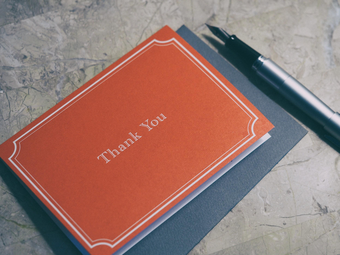 Being perceived as having or not having a certain accent has profound consequences. (Tweet it!) Preconceptions about accents can lead to discrimination in job interviews, performance evaluations and access to housing, to name just a few areas. According to linguist Roberto Rey Agudo of Dartmouth College, “Too often, at the hospital or the bank, in the office or at a restaurant — even in the classroom — we embrace the idea that there is a right way for our words to sound and that the perfect accent is one that is not just inaudible, but also invisible.” But as Professor Agudo also points out, “No one speaks without an accent.” (New York Times) The “standard accent” in the United States—the one we tend to hear in the media—is still an accent. Perhaps one key difference is that the standard accent is never mocked, unlike many nonnative accents or American variants, such as Southern Drawl, Valley Girl, or New York “Fuhgedaboudit.” Such judgments are purely social, says Agudo. “To linguists, the distinctions are arbitrary. However, the notion of the neutral, perfect accent is so pervasive that speakers with stigmatized accents often internalize the prejudice they face.” What we all must remember is that accent by itself is a poor measure of language proficiency (the linguistic equivalent of judging a book by its cover). It does not reflect strength of vocabulary, or capability to provide detail or to hold one’s own in an argument. Instead, we should become aware of our linguistic biases and learn to listen more deeply before making judgments. Do you think you have an accent, and how would you characterize it? Do you think you have ever, perhaps unwittingly, pre-judged anyone based on their accent? To join the conversation, click "comments" above. If you would like to read more about creating a habit around masterful communication, check out our book: Be Quiet, Be Heard: The Paradox of Persuasion
2 Comments
 People like getting thank you notes. So why do so few of us send them? (Tweet it!) According to Amit Kumar, a professor at the University of Texas at Austin who studies well-being, it’s because people underestimate the appeal of receiving an appreciative email. In a study conducted by Kumar and Professor Nicholas Epley of the University of Chicago (https://nyti.ms/2zZyRIE), researchers found that people also fear that the note may appear insincere and might make the recipient feel uncomfortable. In the study, over 100 participants in each of four experiments were asked to write a short “gratitude letter” to someone who’d affected them in some way. Sample letters included expressions of thanks to friends who offered guidance through the college admissions process, job searches and other stressful times. After receiving thank-you notes and filling out questionnaires about how it felt to get them, many said they were “ecstatic,” scoring their happiness rating at 4 of 5. The senders typically guessed they’d evoke a 3. Dr. Kumar observed that it took most subjects less than five minutes to write the letters. So, what are people waiting for? Along with underestimating the value of sending such notes to others, many seemed to be concerned with how much their writing would be scrutinized. As it turned out, most recipients didn’t care how the notes were phrased; they cared about warmth. And they also tended to judge the writing itself as very competent. In all, says Dr. Kumar, “People tend to undervalue the positive effect they can have on others for a tiny investment of time.” When is the last time you sent a thank you note, and what was the response? When was the last time you received one, and how did it make you feel? To join the conversation, click "comments" above. If you would like to read more about creating a habit around masterful communication, check out our book: Be Quiet, Be Heard: The Paradox of Persuasion  Employees might dislike open office plans, but at least they help employees collaborate and build a sense of teamwork, right? Well, nope. (Tweet it!) Ethan Bernstein and Stephen Turban, of Harvard Business School and Harvard University, took a look at employees who switched from individual cubicles to an open office plan. What they found wasn't more collaboration after the switch but less (https://bit.ly/2KYeywv). The participants in the study, whose roles included sales, technology and human resources:
Although it is probably no surprise that employees have expressed negative feelings about open plan offices, both in terms of lost privacy and adverse effects on communication, this is the first study to provide an objective measure of the impact of an open-plan space on how people interact. “While it is possible to bring chemical substances together under specific conditions of temperature and pressure to form the desired compound, more factors seem to be at work in achieving a similar effect with humans,” the researchers said. “Until we understand those factors, we may be surprised to find a reduction in face-to-face collaboration at work even as we architect transparent, open spaces intended to increase it. Have you ever worked in an open space office? What was your preferred method of communication with co-workers while you did, and why? To join the conversation, click "comments" above. If you would like to read more about creating a habit around masterful communication, check out our book: Be Quiet, Be Heard: The Paradox of Persuasion  A Gallup report reveals that millennial career happiness is down while disengagement at work climbs: 71% of Millennials aren't engaged on the job, and half of all those employed plan to leave within a year. Bosses carry the responsibility for 70% of employee engagement variances. When Millennial employees feel supported by their boss, their happiness on the job soars — as does company success. (Tweet it!) But building a healthy relationship involves the efforts of both parties. Writing in Forbes, “Under 30” columnist Sarah Landrum advises, “When you’re first hired, you should get to know your company’s culture and closely watch your boss as you learn the ropes.” Among variables to consider:
Do you think your relationship with your boss could be improved? What actions are you taking to make that happen? To join the conversation, click "comments" above. If you would like to read more about creating a habit around masterful communication, check out our book: Be Quiet, Be Heard: The Paradox of Persuasion |
Archives
July 2024
Categories
All
|
|
Glaser & Associates, Inc.
Executive Offices 1740 Craigmont Avenue, Eugene, OR 97405 541-343-7575 | 800-980-0321 [email protected] |
© 2019 Glaser & Associates. All Rights Reserved.


 RSS Feed
RSS Feed